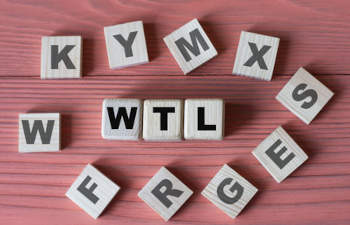The Upper Room Discourse 10 Rabbi Michael Weiner

John 14:6 Yeshua said to him, “I am the way, the truth, and the life! No one comes to the Father except through Me.”
Rabbi Trail: When I was a new believer, I was part of a congregation that had two services every week, one on Friday night that was Messianic, and one on Sunday morning that was more like Sunday church. Eventually, that pattern was replaced, and blended into, one service only, on Saturday morning, as it is to this day at Ohev Yisrael Messianic Synagogue in Northern Virginia.
At that Friday night service, an older Jewish man would stand every week during testimony time, and advertise his Amway business using our subject verse. He would marginalize the first and third words when he said, “I am the way,” so people would hear, “_ Am _ way.” After a while it wasn’t funny any more, but it was highly predictable. As I said before, “Every community has its characters.” End RT.
Seriously, Yeshua is making one of the most controversial statements in history. In fact, it is a statement that changed world history. Let’s catch the context. Yeshua had just finished prophesying Peter’s denial of Him (at the end of John 13). Then He spoke the words we had last time: John 14:1 Do not let your heart be troubled. Trust in God; trust also in Me.
Let’s unpack this a little before we get to Thomas’ question. Yeshua had spent much of the evening of the Last Supper speaking of, and preparing the disciples for His imminent departure (upon His crucifixion death). He is now speaking as a groom going to “prepare a place for you …” His Bride. So, of course, He says, John 14:3b I will come again and take you to Myself, so that … (paraphrasing) we can be together in intimacy for all eternity.
Next, Yeshua makes the statement that Thomas challenges. John 14:4 And you know the way to where I am going. But Thomas didn’t think he knew the way, so he asked … John 14:5b Master, we don’t know where You are going. How can we know the way? This brings us to Yeshua’s history changing statement, which is our subject verse … John 14:6 Yeshua said to him, “I am the way, the truth, and the life! No one comes to the Father except through Me.”
Go ahead, ask a universalist about this verse. Ask the “live and let live” crowd about it. Ask those who believe there are many paths to truth. You’ll find (what I call) Exacto Knife theology. An Exacto Knife is a razor blade that looks like an ink pen. People who don’t believe the whole Bible have to cut out the parts that give them trouble, using an Exacto Knife to remove the hard parts.
When Yeshua says, “I am the way …”, He is making a reference to how we obey God. Halacha (Hebrew for “the way of walking”) is how we interpret Scripture. Yeshua is saying that He will show us the way to obedience.
Yeshua also says, “I am … the truth.” The world wants to define truth on its +terms. The “50 shades of grey” crowd believes in “situational truth.” To them, truth depends on who is asking, and who is answering, and how either of them “feel” at the moment. To Yeshua, the straight path is Who He is. It is impossible for Him to lie. One last thought on truth. Truth is only found in reality (every liar is pretending to have the truth, but doesn’t), and Yeshua is “THE REALITY” of all things.
Finally, Yeshua says, “I am … the life!” Scripture acknowledges the brevity of life. Jacob 4:14 Yet you do not know what your life will be like tomorrow. What is your life? For you are a vapor that appears for a little while and then vanishes. The reality of life is eternal, and eternal life is only found through faith in Him. 1 John 5:11-12 And the testimony is this – that God gave us eternal life, and this life is in His Son. The one who has the Son has life; the one who does not have Ben-Elohim does not have life.
Yeshua’s words should pierce our hearts. 1 Timothy 2:5 For there is one God and there is one Mediator between God and men – a human, Messiah Yeshua Jewish people tend to marginalize the need for a mediator, but all of Judaism is based on that. Israel always had a priesthood that would mediate between God and the people.
Hebrews 4:15-16 For we do not have a kohen gadol who is unable to sympathize with our weaknesses, but One who has been tempted in all the same ways – yet without sin. Therefore let us draw near to the throne of grace with boldness, so that we may receive mercy and find grace for help in time of need.
That’s the concluding verse of our 2022 Congregational Declaration. We say in Hebrew, Ein Od. It means, “There is no one else.” Soli Deo Gloria (Latin): “to the glory of God alone.” Now we know the way the truth and the life. Amen.



